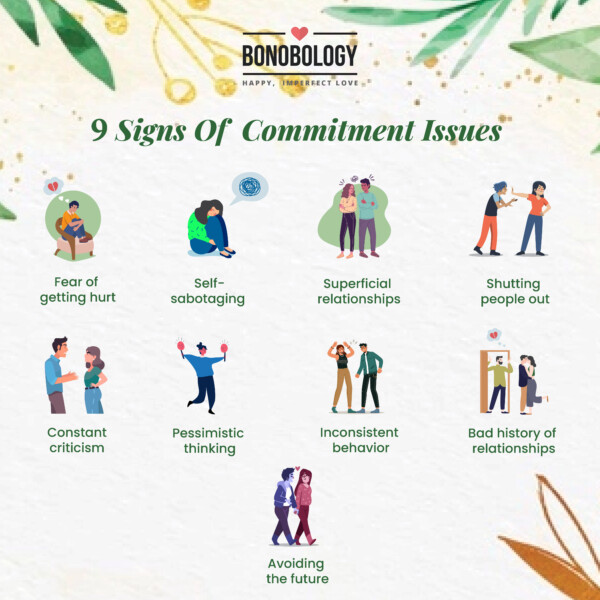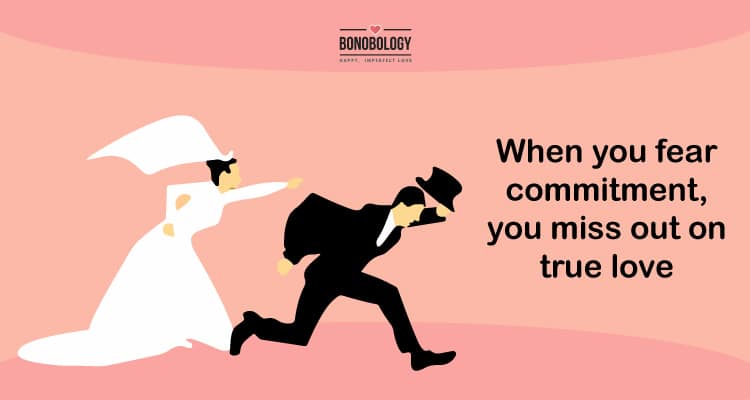
Understanding the Fear of Commitment
Definition of Fear of Commitment
Fear of commitment, often termed “commitment phobia,” manifests as an intense anxiety or apprehension about forming long-term relationships. This fear can lead individuals to shy away from serious involvement, whether in romantic relationships, friendships, or even professional commitments. At its core, this anxiety stems from the idea of being tied down or losing one’s freedom.
Imagine a young professional excitedly pursuing their career. While they may seek relationships, the thought of navigating a serious partnership feels overwhelming. This hesitation isn’t simply about the fear of a potential breakup; it involves deeper anxieties about change, vulnerability, and loss of autonomy.
Causes of Fear of Commitment
Understanding the root causes of commitment phobia helps unravel this complex emotional tapestry. Here are some common contributors:
- Past Trauma: Experiencing a painful breakup or witnessing a tumultuous relationship can scar individuals, leading them to perceive commitment as a potential for hurt.
- Fear of Failure: The anxiety surrounding the possibility of relationships ending can deter individuals from even starting one. The idea of “what if it doesn’t work out?” looms large in their minds.
- Poor Role Models: Growing up in environments where relationships were unstable or unhealthy can lead to the internalization of negative beliefs about commitment.
- Independence: Many people highly value their freedom and may see commitment as a constraint on their personal goals and aspirations.
Recognizing these factors can be instrumental in addressing and overcoming commitment fears. By understanding where these emotions originate, individuals can take proactive steps towards healthier relationships.
:max_bytes(150000):strip_icc()/couple-comforting-each-other-recirc-getty-10-31-3a8dd36a4afa4dcda118a5c3d6bd7f1a.jpg)
Signs and Symptoms of Commitment Phobia
Behavioral Patterns Related to Commitment Phobia
Identifying commitment phobia requires keen observation of behavioral patterns that signal an aversion to long-term relationships. These behaviors can often be subtle at first, but they can escalate over time. Here are some common signs:
- Avoidance of Serious Conversations: Individuals might steer clear of discussions regarding the future or the nature of the relationship. You might find them deflecting when the topic of “where is this going?” comes up.
- Keeping Relationships Casual: They often prefer to keep things light, opting for casual encounters rather than investing in deeper emotional connections.
- Frequent Breakups: If patterns of starting and ending relationships quickly emerge, it may indicate a fear of commitment. Instead of working through issues, they might opt for the easier route of detachment.
- Distance in Intimacy: A commitment-phobic person may struggle with physical or emotional intimacy, maintaining a certain emotional distance even in long-term relationships.
Emotional Indicators of Fear of Commitment
Beyond observable behaviors, emotional indicators play a crucial role in identifying commitment phobia. Here are some feelings and thoughts individuals might experience:
- Anxiety About the Future: As relationships progress, constant apprehension about what lies ahead can arise, leading to overall discomfort.
- Feelings of Inadequacy: A commitment-phobic person may feel uncertain about their capability to maintain a long-term relationship, leading to self-doubt.
- Desire for Freedom: They might experience an overwhelming need for independence, equating commitment with confinement.
For example, someone might feel excited at the prospect of meeting new people, yet panic when a relationship starts to get serious. Recognizing these signs can pave the way for self-awareness and potential growth, enabling individuals to confront and tackle their fears head-on.

Overcoming Fear of Commitment
Self-Reflection and Awareness Techniques
Confronting the fear of commitment starts with robust self-reflection and awareness techniques. When individuals take time to examine their feelings and past experiences, they can better understand their fears. Here are some effective strategies to consider:
- Journaling: Writing thoughts and emotions can illuminate patterns of fear and anxiety. It allows individuals to express their feelings, which is a vital step in processing them.
- Meditation and Mindfulness: Taking time to practice mindfulness can help individuals ground themselves, reducing overwhelming fears of future commitments. Techniques like deep breathing can also ease anxiety in high-stress moments.
- Identify Triggers: Recognizing what specifically triggers commitment anxiety—such as certain conversations or situations—can empower individuals to anticipate and manage their fears more adeptly.
By fostering self-awareness, individuals can begin to dismantle the restrictive beliefs they hold regarding relationships.
Building Trust and Communication in Relationships
Once self-awareness is established, the next crucial step is to strengthen trust and communication in relationships. A solid foundation makes commitment feel less daunting. Consider these approaches:
- Open Dialogues: Create spaces for honest conversations. Sharing fears about commitment with a partner can lead to mutual understanding and support. A simple expression of, “I struggle with the idea of commitment,” can break the ice.
- Setting Small Goals: Instead of focusing on long-term commitments, establish short-term goals together. This could involve planning a weekend trip or trying out a new hobby. Small steps build comfort over time.
- Active Listening: Engaging fully in conversations fosters deeper connections. Demonstrating that both parties value each other’s thoughts and feelings can enhance trust.
To illustrate, consider a couple who chooses to regularly check in with each other about their feelings. This practice nurtures a secure environment where both partners feel heard, making the idea of commitment less intimidating. By implementing these strategies, individuals can gradually work towards overcoming their fear of commitment and embracing more fulfilling relationships.

Seeking Professional Help
Therapy and Counseling Options
For individuals grappling with a fear of commitment, seeking professional help can be a game-changer. Therapy and counseling provide valuable tools for understanding and addressing underlying issues. Here are several effective options:
- Cognitive Behavioral Therapy (CBT): This approach focuses on identifying and changing negative thought patterns. Through CBT, individuals can learn to replace anxious thoughts about commitment with more balanced perspectives.
- Psychodynamic Therapy: This type delves into past experiences and subconscious fears, helping individuals uncover the root causes of their commitment issues. It often provides insights that lead to emotional healing.
- Couples Therapy: For those in a relationship, couples therapy can help partners understand each other’s fears and work collaboratively towards building a healthier, more secure connection.
Many people find that a blend of these therapies offers the most comprehensive support. For instance, someone may start with individual therapy to tackle personal fears and later explore couples therapy to strengthen communication with their partner.
Support Groups and Resources for Commitment Phobia
In addition to therapy, support groups can be invaluable for those struggling with commitment phobia. Connecting with others who share similar fears fosters a sense of community and understanding. Consider these resources:
- Local Support Groups: Many communities or mental health organizations host groups focused on relationship issues, including commitment phobia. Sharing experiences can help normalize feelings and lessen isolation.
- Online Forums and Communities: Platforms such as Reddit or dedicated mental health websites often have threads where individuals discuss their fears, offering advice and support to one another.
- Books and Workbooks: Reading literature focused on relationships and commitment issues can also provide insights and coping strategies. Some popular titles include “Attached” by Amir Levine and Rachel Heller, which explores attachment styles in relationships.
Navigating the fear of commitment can seem daunting, but with the right professional guidance and community support, individuals can take significant strides towards healthier relationships and emotional well-being.
